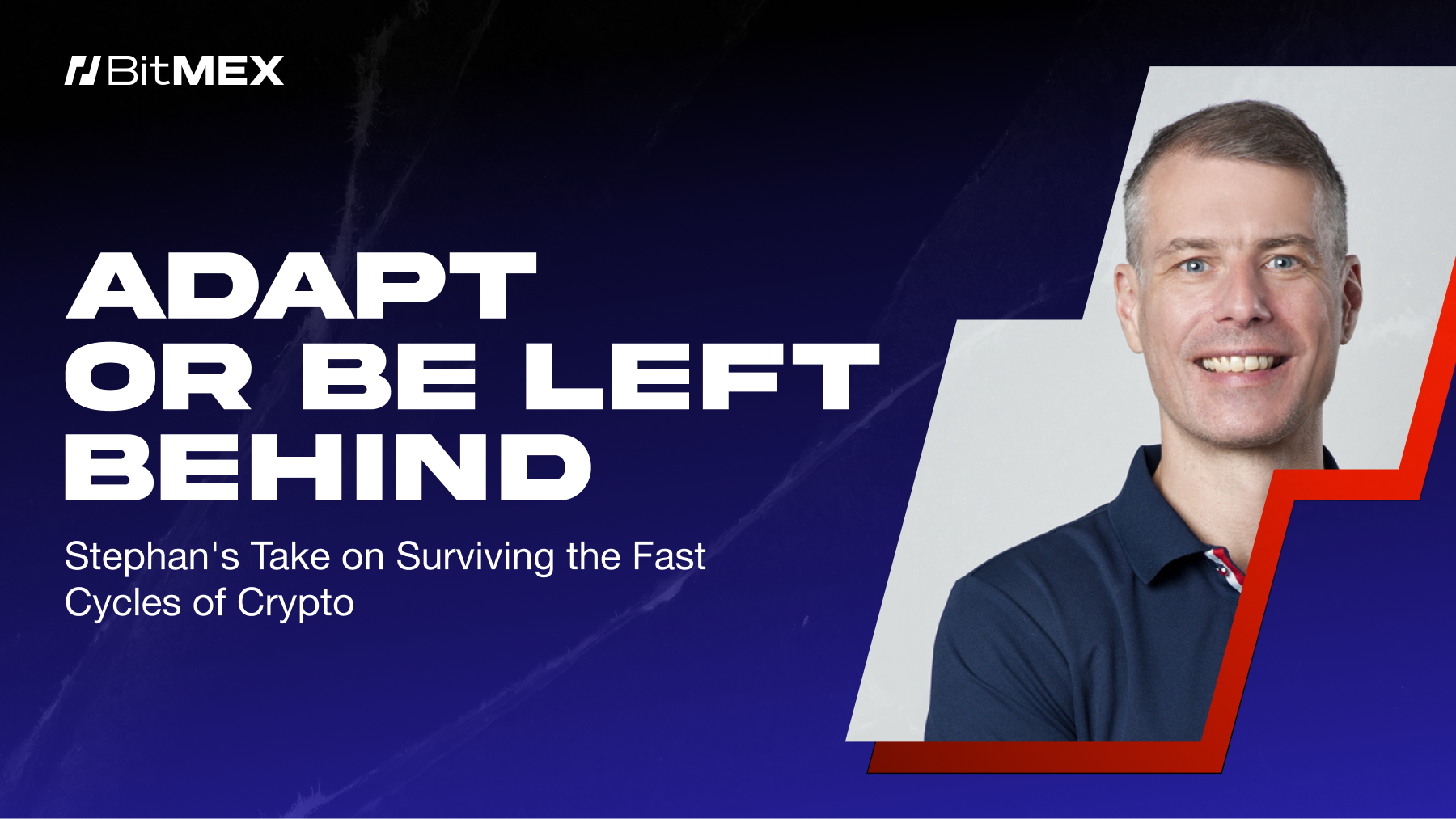 Executive Summary
Executive Summary
Wealth Masters took the unique opportunity to host an exclusive interview with BitMEX CEO Stephan Lutz, offering our trading community rare insights into how one of the world’s first and most innovative crypto derivatives exchanges continues to thrive in fast-changing markets.
In this conversation, Lutz shares his journey from traditional finance to leading BitMEX, explains the exchange’s niche in crypto derivatives, and reflects on its commitment to transparency, innovation, and trader support. He also discusses the evolution of DeFi, the myths surrounding leverage trading, and the importance of trust, community, and adaptability in the next era of crypto finance.
Explore more insights and educational content from our community at Wealth Masters.
Background and Career Path
Gabriele: Let’s start with your story. Could you share your background and how you moved into crypto?
Stephan Lutz: I began in traditional finance. I trained in banking, studied at Frankfurt School, then worked in trading and corporate finance. Later I became CFO of a shipping company, financing billions in fleet growth. Afterward, I joined Deutsche Börse, gaining deep experience in exchanges and clearing. At PwC, I led capital markets in Europe, advising banks on Brexit and recovery planning.
In Southeast Asia, I noticed many people lacked bank accounts but had mobile phones. That sparked my interest in alternative payment systems. Around 2015, I followed crypto privately. When BitMEX asked me to join as CFO, it was the perfect fit — combining my capital markets background with blockchain. Despite colleagues calling it risky, I saw it as a once-in-a-lifetime opportunity.
Competition Among Exchanges
Gabriele: And now competition among exchanges is intense. How does BitMEX stand out?
Stephan Lutz: I’ve seen this before in traditional finance. Many exchanges appear, then consolidate into a few global leaders and niche players. BitMEX is a niche leader in derivatives. We serve traders who want to hedge exposure or gain capital-efficient exposure with leverage.
Our founders invented perpetual swaps — now the most traded crypto derivative. They allow traders to control a position with far less capital, but with capped downside risk. That efficiency explains why derivative volumes exceed spot.
We differentiate through service and community: 24/7 support for VIPs, weekly market insights (BitMEX Alpha), Arthur Hayes’ macro essays, and BitMEX Research. Recently we launched AI tools analyzing trading behavior to help traders manage risk, plus copy trading with portfolio allocation and even inverse strategies. It’s designed more like passive investing in TradFi.
Democratization of Finance
Gabriele: That’s interesting. But many people describe crypto as democratizing finance. Do you see it that way?
Stephan Lutz: The technology enables it, yes. But not everyone wants — or can — be their own bank. Managing custody, wallets, and smart contracts is complex. For some, especially in DeFi, it’s empowering. But for most, ease and service matter more.
So crypto won’t replace the entire financial system. It will likely serve 10–20% of people directly. Still, that’s huge — it provides a real alternative. At BitMEX we embrace both worlds: centralized structure, but with transparency and crypto-native ethos. We keep 95% of assets on-chain, provide proof of reserves and liabilities twice a week, and run neutral, fully segregated funds.
DeFi vs CeFi
Gabriele: And what’s your take on DeFi platforms like Hyperliquid?
Stephan Lutz: They innovate well, with smooth interfaces and clever liquidity systems. But models differ. BitMEX doesn’t act as a market maker; we segregate funds and remain neutral. DeFi relies on user-provided liquidity, which can rise or fall quickly. Both models will coexist. I personally use DeFi sometimes, but I trust most of my exposure on BitMEX. Different users have different needs.
The Myth of Leverage
Gabriele: Let’s clear a misconception. What’s the biggest myth about leverage trading?
Stephan Lutz: People assume it’s like TradFi, where margin calls can cost more than your initial stake. In crypto, that’s impossible. If your margin runs out, your position is liquidated, and that’s it. No one comes after your house. Leverage here simply amplifies gains or losses, but within your collateral. It’s actually safer in terms of consumer protection.
Lessons Learned
Gabriele: That’s important for people to understand. Last question: If you built an exchange from scratch today, what would you do differently?
Stephan Lutz: If I started from scratch today, I wouldn’t change the core idea — perpetual swaps solved a real problem and put BitMEX on the map. What I would change is how quickly we adapted once the market shifted.
In the beginning, everything was about technology: secure wallets, risk management, and innovative products. But once competitors caught up, the real competition moved to liquidity, distribution, and community. In crypto, cycles run in months, not years, so you have to adapt immediately.
If I built an exchange now, I’d balance both from day one: bulletproof tech and strong go-to-market strategy — community, partnerships, and branding. Technology is crucial, but trust and relationships ultimately decide who wins.
Closing
Gabriele: Will we see BitMEX at Token 2049?
Stephan Lutz: Absolutely. See you there.
Gabriele: Thank you, Stephan.
Stephan Lutz: My pleasure.
Follow Wealth Masters:
LinkedIn: https://www.linkedin.com/company/wealthmasters-club/?viewAsMember=true
Twitter: https://x.com/thewealthm
Website: https://www.wealthmasters.pro/
